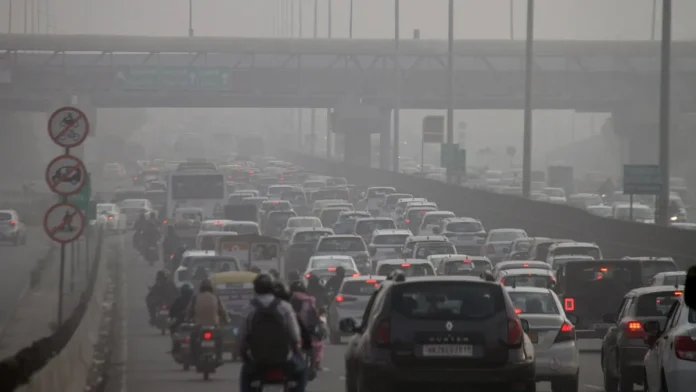New Delhi, November 20: In response to the escalating air pollution crisis in Delhi-NCR, the Delhi Police conducted extensive vehicle checks on Tuesday night to enforce Stage IV of the Graded Response Action Plan (GRAP).
Stage IV of GRAP, implemented since 8:00 AM on November 18, mandates a ban on the operation of Delhi-registered BS-IV and older diesel medium and heavy goods vehicles (MGVs and HGVs), except those engaged in essential services. The move comes as air quality in the region remains in the “severe” category.
Delhi Environment Minister Calls for Emergency Cloud Seeding
Delhi Environment Minister Gopal Rai has urged Union Environment Minister Bhupendra Yadav to convene an emergency meeting with stakeholders, including IIT Kanpur, DGCA, and central government departments, to explore cloud seeding as an emergency measure to dissipate the smog layer.
“The time has come to carry out artificial rainfall to break the smog layer,” said Rai. “Last year, we collaborated with IIT Kanpur on cloud seeding as a potential solution for extreme pollution levels. Despite several requests, a meeting to discuss this has yet to be convened.”
Rai highlighted ongoing efforts by the Delhi Government, including:
- Banning BS-III petrol vehicles and BS-IV diesel vehicles.
- Restricting trucks and diesel buses from entering Delhi.
- Closing schools for Classes 10 and 12.
- Staggering office timings.
He added that work-from-home measures are under deliberation and emphasized the need for immediate action to mitigate pollution. “Breaking the smog layer is critical to effectively combating this crisis,” Rai stated.
Supreme Court Enforces GRAP Measures
On Monday, the Supreme Court ordered strict enforcement of GRAP Stage IV measures across Delhi-NCR. A bench led by Justices Abhay S Oka and Augustine George Masih instructed all NCR states to form monitoring teams and implement actions under GRAP. The court also ruled that GRAP Stage IV measures must remain in place even if the Air Quality Index (AQI) improves slightly, staying below the “severe” threshold of 450.
The central government and NCR states have been directed to submit compliance affidavits to ensure accountability.
With air quality showing no immediate signs of improvement, the combined efforts of law enforcement, government agencies, and judicial oversight aim to bring relief to the region’s residents.



